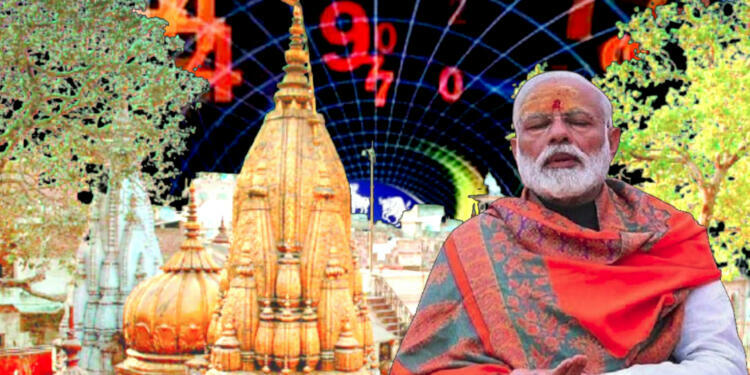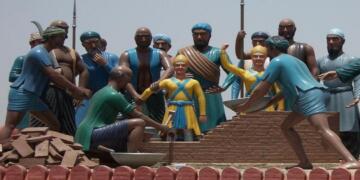Most unquestioned superstitions have vast swathes of unearthed history behind them. If people do not muster the courage to question it, it becomes an unwritten law. The unluckiness associated with the number 13 is one of those superstitions. However, PM Modi’s inauguration of the Kashi Vishwanath complex on the 13th of December has shattered the myth of negative superstition around 13.
Indians were surprised by the selection of day 13:
Indians who have grown-up reading Marxist distorians’ books and consuming western models of entertainment were surprised when they saw PM Modi choosing the 13th of December as the date for auspicious inauguration in Kashi. It’s not their fault though; they have grown up believing that 13 is an unlucky number. But it’s moralistically, factually, and historically wrong.
Read more: The story of how Kashi Vishwanath Mandir was destroyed, restored and finally re-established
The myth of unluckiness of day 13:
The myth of 13 being an unlucky number started with the introduction of the Judeo-Christian moral system in India. 13 is considered unlucky in the western world and they have their own reasons for it. During biblical times, Judas, who is said to be a betrayal of Jesus was his 13th disciple. Similarly, the 13th chapter of the book of revelation is dedicated to showcasing the evil elements of society.
Moreover, according to a legend, when some monks were trying to arrange a calendar in a year of 13-full moons, they found it difficult and started cursing the number. The cursing of monks played a major role in the spreading of phobia around number 13. There is a popular saying in English, ‘Friday the 13th’, which means, when the date of the 13th is and the day is Friday, then nothing good happens.
13 is a lucky number in Sanatan civilization:
Indian Sanatan values take a 180-degree sideways approach from Westerners when it comes to their belief around number 13. 13 is considered to be one of the luckiest numbers in our culture.
Indian ladies observe a two-day Pradosh Vrat for the well-being of their husbands. One of those two days is Trayodashi (observed on the 13th day of every month). The 13th day, referred to as Trayodashi is especially considered to be auspicious for various other purposes as well. On this day the holy festival of Dhanteras falls in the month of Kartik, from which the shopping for Diwali starts.
The 13th day is dedicated to Bhagwan Shiv. The Pradosh Vrat which women observe is dedicated especially to Bhagwan Shiv. Similarly, Maha Shivratri, the biggest celebration of Bhagwan Shiv is observed on the 13th day of Magh month in the Sanatan calendar.
Read more: Why Bhagwan Shiva is different from all other gods?
If 13 was truly an inauspicious day, Saurav Ganguly would not have lifted the Natwest trophy in 2002 on 13th July. Similarly, Balbir Singh Dosanjh, considered to be the iron pillar of Indian hockey, who won three consecutive Olympic gold medals for India, also played wearing the No.13 jersey. Former president Pranab Mukherjee has also debunked the Judeo-Christian myth of 13 being an unlucky number.
PM Modi tried to instil a happy memory for Indians:
Before the inauguration of the Kashi Vishwanath Mandir complex, Indians had only one reason for remembering the 13th day of December. It was an extremely frightening one, as on this day the Indian Parliament, the Mandir representing Indian democracy was attacked in 2001.
Read more: 20 years of Parliament Attack – The attack that changed India forever
By inaugurating the Mandir complex on the 13th of December, PM Modi has given the nation something to be happy about on this day. Building upon this foundation, Shri Narendra Modi has given a clear message to the world that we no longer will carry the burden of unnecessary cultural imposition. It’s time for India to adopt its cultural legacy with pride and honour.




























